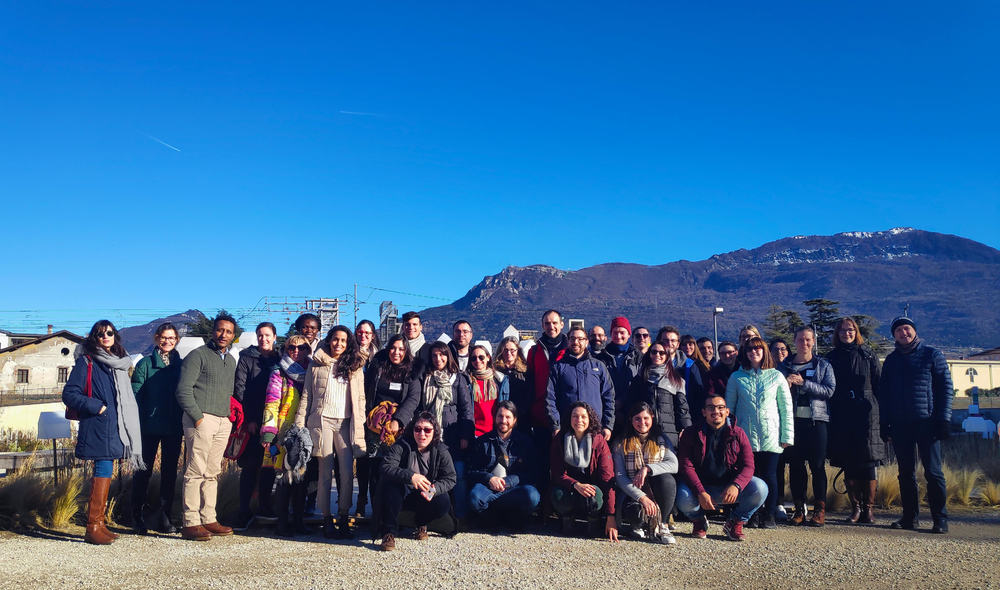ReNature Training III: Urban planning in Trento
Over 40 students and experts came to Trento, Italy, for the third ReNature training "Nature-based solutions in urban planning". On 6 and 7 February 2020 participants gathered at the University Trento to learn how NbS can be a benefit to cities and how urban areas can be transformed into smart, efficient and pleasant environments.
Training participants represented the countries Bulgaria, Colombia, Czech Republic, Estonia, Finland, Germany, Italy, Ireland, Luxembourg, Malta, Norway, Slovakia, Slovenia, Sweden and UK.

Combining lectures on ecological foundations, urban ecosystem services and NbS design, the training course provided a solid base for a real-life urban planning exercise. The trainees worked on a case study of 21 preselected areas classified by Trento’s Urban plan as urban transformation sites. The case study presented an urban planning exercise, where working groups had to develop a planning proposal for a subset of sites, considering the ecological, economic and legal perspective. А field trip to the selected sites helped participants acquaint themselves with the case study areas and their specifics.
Divided into five groups, students presented their design for a set of urban areas in Trento, considering urban challenges and addressing policy objectives. The concepts of all teams were evaluated by expert urban planners from Trento, who assessed the development strategy, the expected impacts, advantages and limitations.
The best comes last ✨ Our #TrentoTraining2020 participants are presenting how urban planning can incorporate #naturebasedsolutions and provide #ecosystemservices. ����
— ReNature Project (@ReNature_H2020) February 7, 2020
Local experts are here to evaluate the ideas and take them into consideration for the future of Trento �� pic.twitter.com/NEfdUfkCOv
Find insights into the training, as well as live broadcast on Twitter at #TrentoTraining2020.
This training is part of a series of capacity-building activities, organized by ReNature. A total of five cross-cutting training courses and two summer schools will take place until the end of the project.